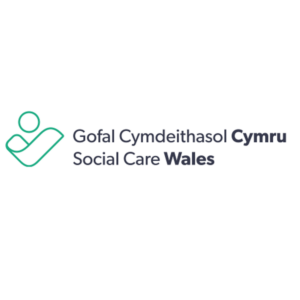Royal College of Physicians (RCP) launches new report on acute oncology services in Wales
RCP Cymru Wales has launched a major new report calling for investment in emergency cancer care at the front door.
Drawing on the experiences of patients, doctors, nurses and therapists from around Wales, the RCP is calling on all health boards to invest in acute oncology services (AOS) and ambulatory (same day) care which can improve patient experience and medical outcomes, reduce hospital length of stay, and keep people at home for longer.
This new report, endorsed by the Society for Acute Medicine, finds that many cancer patients will, at some point in their illness, need specialist emergency cancer care in their local hospital A&E. However, there is an unplanned and unmet need for AOS at the hospital front door across much of Wales, which means that cancer patients can have a very poor experience in a crisis.
- Half of us will be diagnosed with cancer at some point in our lives.
- More than one-third of Wales’ cancer cases are diagnosed when people arrive at hospital in an emergency.
- Around a fifth of acute hospital beds are occupied by people who have some sort of cancer-related problem.
- Over one-third of hospital admissions could be avoided and over one-third of stays could be made shorter with an ambulatory care model for AOS.
- Most people who die of cancer will have an emergency hospital admission in their last year of life.
An acute cancer admission can mean that a patient’s condition is getting worse, but early review and rapid assessment by the right team can lead to quicker discharge and help to avoid readmission. This can drastically improve the experience of patients and their families during an emergency.
Wherever a patient lives in Wales, they should be able to access high quality, supportive and patient-centred AOS. All health boards should produce local plans that include:
- long-term investment in more specialist staff to ensure cross-cover and a sustainable, resilient service
- protected time for service provision and education
- a multidisciplinary team approach across primary care, acute medicine, palliative care and oncology
- closer regional collaboration
- a focus on reducing health inequalities.
Dr Olwen Williams, RCP vice president for Wales said:
‘Every year, thousands of people come into contact with acute oncology services (AOS) in the Welsh NHS. This includes people who receive an emergency cancer diagnosis at the front door of the hospital, as well as those people living with cancer who suddenly become seriously ill, either because of their illness itself or because of complications with their treatment. In an ideal world, these patients would receive high-quality care at the front door from specialist clinicians who understand the complexity of cancer, its complications and treatments, and the devastating effect that the disease can have on people’s physical, emotional, financial and mental wellbeing. Marie Curie recently found that in Wales, more than 56,000 A&E visits every year are for people approaching the end of their life, and over half of these happen in the evening and at weekends. This makes it even more important that we get this right: we need more cancer specialists at the hospital front door, which is why we want to encourage senior NHS leaders and decision-makers to work with the Welsh government to invest in these crucial teams and support a clear national vision for AOS in Wales.’
Dr Hilary Williams, consultant oncologist and Wales Cancer Network lead for acute oncology said:
‘Wherever a patient lives in Wales, they should be able to access excellent AOS. Our incredible staff are at the heart of what we do: recruiting and retaining specialist staff is absolutely vital, and a truly multidisciplinary team is key to high-quality patient experience. When people think about cancer treatment, they might think about undergoing surgery or receiving chemotherapy, radiotherapy or immunotherapy in an organised way, perhaps during weekday hours in a specialist centre. But what happens when an emergency arises? What happens if you suddenly become very sick because of your cancer treatment, or a complication arises overnight or during the weekend? What happens if a cancer diagnosis is made during a visit to a hospital emergency department? During one of the most frightening times of your life, you should be treated by someone who understands what you’re going through and can help you with expert advice – this is where AOS teams come in. These are highly trained specialist nurses, doctors and therapists who can support you and your family through an unexpected cancer crisis.’
For more information, please contact [email protected].


